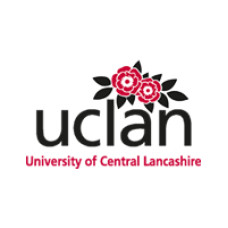Clinical Implantology MSc

- Tution Fees : £45,000
- Course Duration : 1 Year
- Academic Course Level : Postgraduate
- Location : Preston
- Scholarship : 1000
Available Options
| Undergraduate courses | Undergraduate - Year 1 entry | Masters |
|---|---|---|
| 55% overall score Where a specific subject is required for entry to the degree programme, 60% must be achieved in this subject | 58% from listed boards (The All Indian Senior School Certificate awarded by the Central Board of Secondary Education (CBSE), or The Indian School Certificate (ISC) awarded by the Indian Council for School Examinations (ICSE), or a recognised Indian State Education Board, such as the West Bengal, Tamil Nadu, Maharashtra and Karnataka Education Boards. 60% from other boards, not listed above. Where a specific subject is required for entry to the degree programme, 58% must be achieved in this subject | 55% in bachelor degree |
English Language Requirements
-
The standard English language entry requirements for undergraduate courses is IELTS 6.0.
-
The standard English language entry requirements for postgraduate courses is IELTS 6.5.
-
Please refer to the university website's country pages for more detailed entry requirements.
| Entry requirements | |
55% in Bachelors English Requirement 70% in Year 12 English Or 70% average grade in Year 11 and Year 12 English provided Year 12 is not below 65% Or IELTS 6.5 or equivalent |
|
| Course Modules | |
YEAR 1 DX4016 Clinical Implantology 1 (60 Credits) The aim of this module is to introduce the foundation knowledge and practical skills required for the safe practice of implant dentistry within a primary dental care environment. The syllabus content will be applied to encourage the clinical application of knowledge, understanding and demonstrations of skills in: Implant design, principles of osseointegration and the bone/implant interface Detailed patient assessment Appropriate use of diagnostic aids, including imaging Management of occlusion in implant dentistry Patient counselling, with regard to alternative treatment options, education of patient to risks and benefits of dental implant treatment Surgery set-up for implant dentistry Implant placement and restoration in the skills laboratory and clinic for straightforward cases DX4017 – Utilising the evidence base (20 Credits) DX4017 is a highly interactive, fully online module that provides students with the skills they need to critically appraise the academic literature. The module is divided into three distinct sessions. The first provides students with the necessary study skills and introduction to the basic concepts they will need to complete the module, such as an introduction to research, academic integrity, literature searches, validity and reliability, bias, and statistics. The second session focusses on different quantitative methods and how to critically appraise them, before the third session does the same with qualitative methods. There are two assignments. The first is a critical appraisal of a quantitative research paper. The second asks students to write two research outlines, one quantitative and one qualitative. The course is delivered asynchronously, meaning that pre-recorded lectures and materials are provided through Microsoft Notebook. However, students are also required to engage in frequent critical discussion and collaborative tasks with colleagues using Microsoft Teams. Specific time periods are designated for completion of such tasks in order that all students can benefit. YEAR 2 DX4026 Clinical Implantology 2 (60 Credits) This module will build upon the skills and knowledge acquired during DX4016 in providing safe and appropriate dental implant treatment. It will introduce the planning and management of more advanced clinical cases, including an introduction to the use of augmentation procedures. The syllabus content will be applied to encourage the clinical application of knowledge, understanding and demonstrations of skills in: Treatment planning for more advanced clinical cases Options for hard and soft tissue augmentation Management of complications of implant treatment, peri implantitis and prosthodontic failures DX4027 - Research Strategy (40 Credits) This online module will extend the knowledge gained from DX4017 and develop the student’s skills in identifying and appraising scientific studies to inform their own and colleague’s practice, on the basis of best available evidence. Students will learn the key stages in developing focused research questions, constructing systematic searches, and producing a research proposal. Understanding different study designs and recognising their limitations will allow for deeper critical appraisal of both the design and the evidence produced. This knowledge will be applied in developing and implementing their own research proposals and data synthesis. This module leads to the submission of an 8,000 word professional project. The 2 year MSc course will provide you with 180 academic credits, and this equates to 1,800 hours of verifiable CPD that relate to the GDC Development Outcomes as follows: Year 1 – A, C & D Year 2 – A, B , C & D |